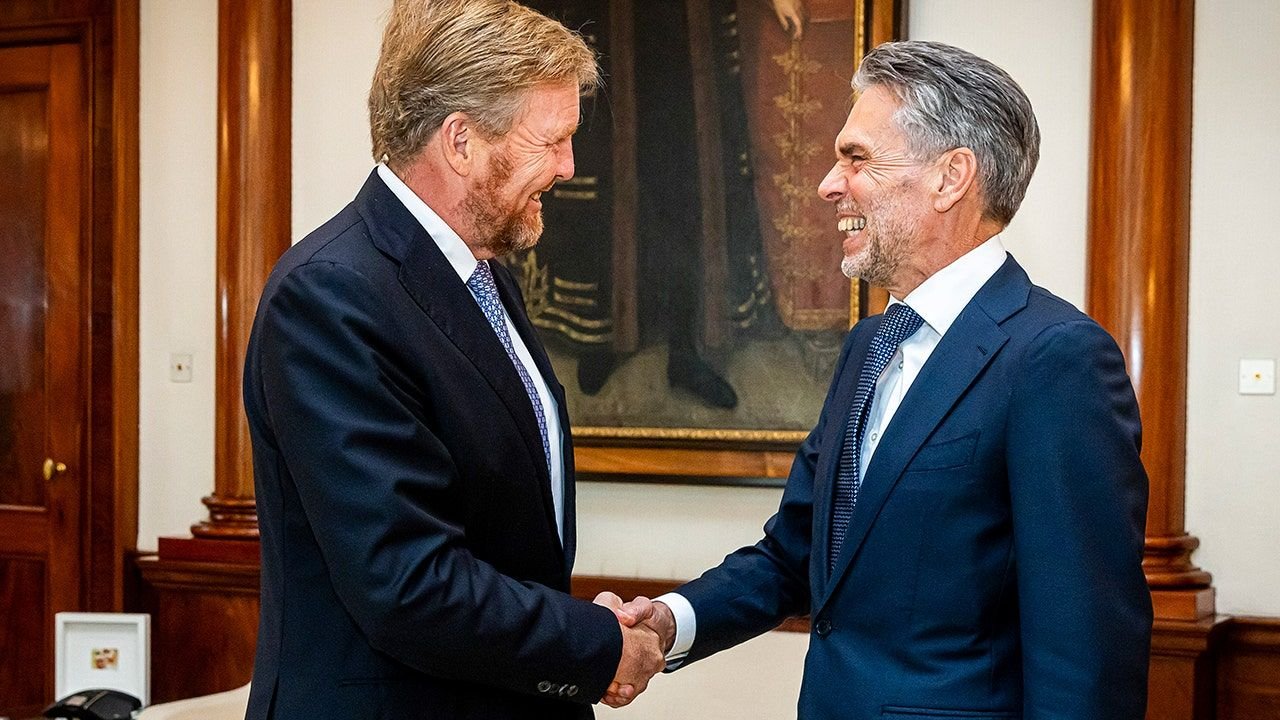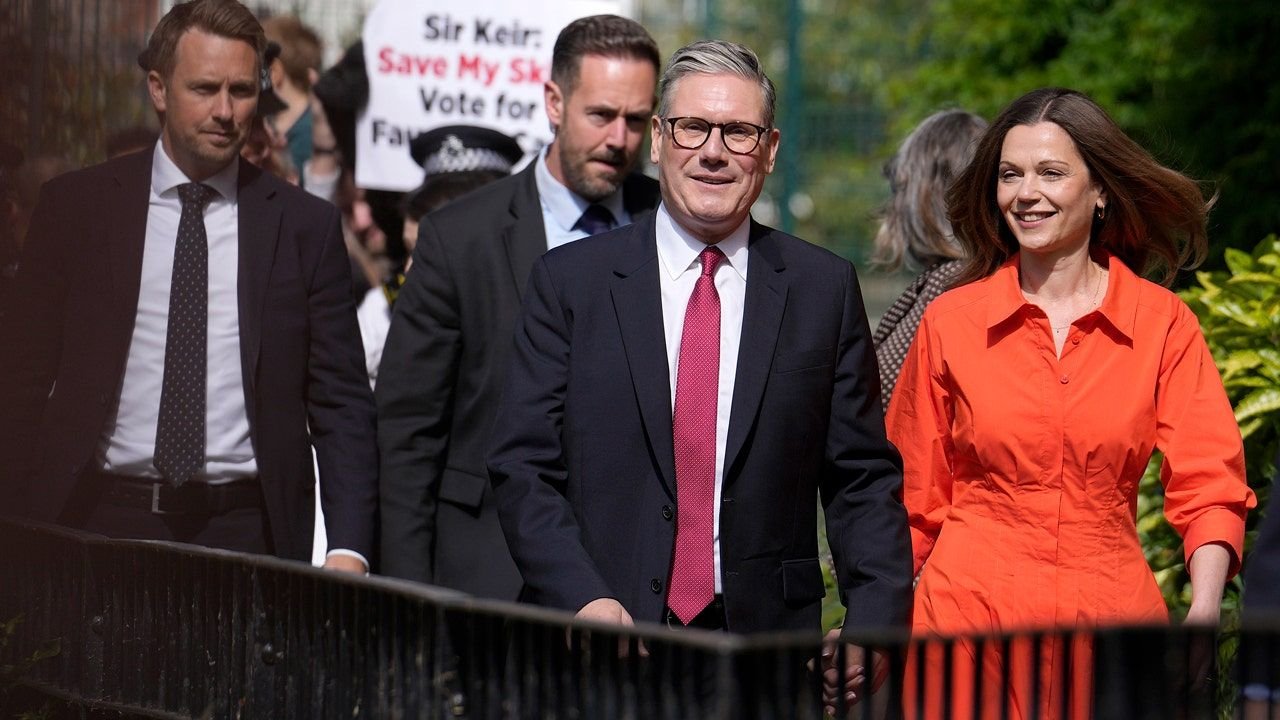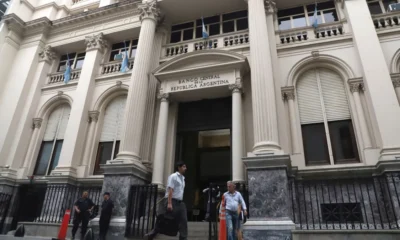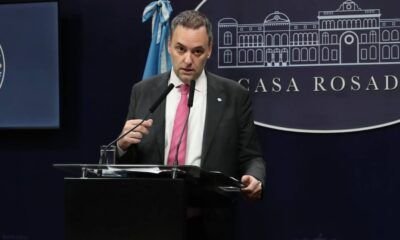INTERNACIONAL
Dutch king swears in a new government 7 months after elections

The Netherlands has a different prime minister for the first time in 14 years as Dutch King Willem-Alexander swore in the country’s new government Tuesday, more than seven months after elections dominated by a far-right, anti-Islam party.
Dick Schoof, former head of the Dutch intelligence agency and counterterrorism office, signed the official royal decree at Huis Ten Bosch Palace, saying he «declared and promised» to uphold his duties as the country’s prime minister. The 67-year-old was formally installed alongside 15 other ministers who make up the country’s right-leaning coalition.
FORMER INTELLIGENCE CHIEF NOMINATED AS NEW PRIME MINISTER BY THE NETHERLANDS’ INCOMING GOVERNMENT
The anti-immigration party of firebrand Geert Wilders won the largest share of seats in elections last year but it took 223 days to form a government.
The new coalition quickly faced criticism of its marquee anti-immigration policies — by its own party members, as well as opposition groups. Protesters gathered in front of the palace where the ceremony took place on Tuesday, with one woman carrying a sign asking: «Are we democratically getting rid of our democracy?»
The four parties in the coalition are Wilders’ Party for Freedom, outgoing Prime Minister Mark Rutte’s center-right People’s Party for Freedom and Democracy, the populist Farmer Citizen Movement and the centrist New Social Contract party.
Dutch King Willem-Alexander meets with incoming Prime Minister Dick Schoof, right, in The Hague, Netherlands, Monday, July 1, 2024. (Patrick van Katwijk/Pool Photo via AP)
The formal agreement creating the new coalition, titled «Hope, courage and pride,» introduces strict measures on asylum-seekers, scraps family reunification for refugees and seeks to reduce the number of international students studying in the country.
Opposition from other coalition partners prevented the controversial Wilders from taking the prime minister’s job. During the monthslong negotiations, he backpedaled on several of his most extreme views, including withdrawing draft legislation that would have banned mosques, Islamic schools and the Quran.
For the first time since World War II, the Netherlands is now led by a prime minister who is not aligned with a political party. Before serving as chief of the country’s top intelligence agency, Schoof was previously the counterterror chief and the head of the country’s Immigration and Naturalization Service.
The other government ministers were sworn in Tuesday according to seniority of their departments. One minister, Femke Wiersma who will head the agriculture portfolio, made her declaration in Frisian — the country’s second official language alongside Dutch.
Although the November elections were widely seen as a win for the far right, political youth organizations are already pushing back on the ambitions of the new government. Ahead of the swearing-in ceremony, youth groups from six parties, including two of the coalition partners, called for a softening on asylum plans.
«Although the influx must be limited, it is of great importance that we receive people here fairly and with dignity,» Eva Brandemann, chairperson of the youth wing of the New Social Contract, told Dutch public broadcaster NOS.
Her counterpart in Rutte’s party, which brought down the government last summer over concerns about the number of family reunifications for refugees, said that problems stemmed from administration, not migration.
«The problem will only get bigger if you don’t fix it,» Mauk Bresser, the chair of the People’s Party for Freedom and Democracy youth organization told The Associated Press.
While Bresser thinks the number of refugees coming to the Netherlands should be reduced, his group says those already here should have their claims processed in a timely fashion and be given the opportunity to integrate.
The new agreement slashes the country’s education budget by nearly 1 billion euros — about $1.06 billion — prompting pushback from universities. «Students will not get the education they deserve,» Nivja de Jong, a languages professor at Leiden University, told the AP. She’s part of a group of academics pushing back against the proposed cuts by delivering lunchtime talks about the importance of their research.
CLICK HERE TO GET THE FOX NEWS APP
The new government will now spend the summer firming the coalition agreement into a governing plan.
The Netherlands isn’t the only country seeing a rise of anti-immigration, far-right views. Last month’s EU elections saw a similar shift, and French voters face a decisive choice on July 7 in the runoff of snap parliamentary elections that could see the country’s first far-right government since the World War II Nazi occupation.
INTERNACIONAL
Britons cast their votes in heavily-anticipated UK parliamentary election

British voters were picking a new government Thursday in a parliamentary election widely expected to bring the Labour Party to power against a gloomy backdrop of economic malaise, mounting distrust in institutions and a fraying social fabric.
A jaded electorate is delivering its verdict on Prime Minister Rishi Sunak’s Conservative Party, which has been in power since 2010. Polls opened at 40,000 stations, including churches, a laundromat and a crematorium.
«Nothing has gone well in the last 14 years,» said London voter James Erskine, who was optimistic for change. «I just see this as the potential for a seismic shift, and that’s what I’m hoping for.»
NIGEL FARAGE’S RETURN TO POLITICS CAUSES WRINKLE IN BRITISH ELECTION: WHY HAS HE PROVEN SO SUCCESSFUL?
While Labour’s steady and significant lead in the polls would appear to buck recent rightward electoral shifts in Europe, including in France and Italy, many of those same populist undercurrents flow in Britain. Reform UK leader Nigel Farage has roiled the race with his party’s anti-migrant «take our country back» sentiment and undercut support for the Conservatives, who already faced dismal prospects.
Hundreds of communities were locked in tight contests in which traditional party loyalties come second to more immediate concerns about the economy, crumbling infrastructure and the National Health Service.
In Henley-on-Thames, about 40 miles west of London, voters like Patricia Mulcahy, who is retired, sensed the nation was looking for something different. The community, which normally votes Conservative, may change its stripes this time.
«The younger generation are far more interested in change,’’ Mulcahy said. «So, I think whatever happens in Henley, in the country, there will be a big shift. But whoever gets in, they’ve got a heck of a job ahead of them. It’s not going to be easy.»
Britain has experienced a run of turbulent years — some of it of the Conservatives’ own making and some of it not — that has left many voters pessimistic about their country’s future. The U.K.’s exit from the European Union followed by the COVID-19 pandemic and Russia’s invasion of Ukraine battered the economy, while lockdown-breaching parties held by then-Prime Minister Boris Johnson and his staff caused widespread anger.
Johnson’s successor, Liz Truss, rocked the economy further with a package of drastic tax cuts and lasted just 49 days in office. Rising poverty and cuts to state services have led to gripes about «Broken Britain.»
Labour Party leader Keir Starmer and wife Victoria arrive at a polling station to cast their vote in London, Thursday, July 4, 2024. Voters in the U.K. are casting their ballots in a national election to choose the 650 lawmakers who will sit in Parliament for the next five years. Outgoing Prime Minister Rishi Sunak surprised his own party on May 22 when he called the election. (AP Photo/Vadim Ghirda)
The first part of the day was sunny in much of the country — favorable weather to get people to the polls.
In the first hour polls were open, Sunak made the short journey from his home to vote at Kirby Sigston Village Hall in his Richmond constituency in northern England. He arrived with his wife, Akshata Murty, and walked hand-in-hand into the village hall, which is surrounded by rolling fields.
The center-left Labour Party led by Keir Starmer has had a steady and significant lead in opinion polls for months, but its leaders have warned against taking the election result for granted, worried their supporters will stay home.
«Change. Today, you can vote for it,» he wrote Thursday on the X social media platform.
A couple of hours after posting that message, Starmer walked hand-in-hand with his wife, Victoria, into a polling place in the Kentish Town section of London to cast his vote. He left through a back door out of sight of a crowd of residents and journalists who had gathered.
Labour has not set pulses racing with its pledges to get the sluggish economy growing, invest in infrastructure and make Britain a «clean energy superpower.»
But nothing has really gone wrong in its campaign, either. The party has won the support of large chunks of the business community and endorsements from traditionally conservative newspapers, including the Rupert Murdoch-owned Sun tabloid, which praised Starmer for «dragging his party back to the center ground of British politics.»
The Conservatives have acknowledged that Labour appears headed for victory.
In a message to voters on Wednesday, Sunak said that «if the polls are to be believed, the country could wake up tomorrow to a Labour supermajority ready to wield their unchecked power.» He urged voters to back the Conservatives to limit Labour’s power.
Former Labour candidate Douglas Beattie, author of the book «How Labour Wins (and Why it Loses),» said Starmer’s «quiet stability probably chimes with the mood of the country right now.»
The Conservatives, meanwhile, have been plagued by gaffes. The campaign got off to an inauspicious start when rain drenched Sunak as he made the announcement outside 10 Downing St. Then, Sunak went home early from commemorations in France marking the 80th anniversary of the D-Day invasion.
Several Conservatives close to Sunak are being investigated over suspicions they used inside information to place bets on the date of the election before it was announced.
Sunak has struggled to shake off the taint of political chaos and mismanagement that’s gathered around the Conservatives.
But for many voters, the lack of trust applies not just to the governing party, but to politicians in general. Farage has leaped into that breach.
The centrist Liberal Democrats and environmentalist Green Party also want to sweep up disaffected voters.
CLICK HERE TO GET THE FOX NEWS APP
«I don’t know who’s for me as a working person,» said Michelle Bird, a port worker in Southampton on England’s south coast who was undecided about whether to vote Labour or Conservative. «I don’t know whether it’s the devil you know or the devil you don’t.»
-
POLITICA3 días ago
La reacción del Gobierno ante la suba del dólar blue: “No vamos a devaluar ni a corrernos del plan de Caputo”
-
POLITICA2 días ago
Tras la tensión diplomática, Lula quiere eliminar el acuerdo automotriz con Argentina
-
POLITICA3 días ago
Milei respondió el comunicado de Bolivia, insistió en que fue “un golpe montando” y criticó a Lula Da Silva
-
ECONOMIA3 días ago
Por la caída de la actividad económica, el superávit de Milei y Caputo está en riesgo
-
ECONOMIA2 días ago
Para el economista Orlando Ferreres, Luis Caputo anunció «un Plan Bonex con otro nombre»
-
POLITICA2 días ago
Gesto de Milei a Mauricio Macri: el Gobierno resigna su representante en la AGN y se lo cede al PRO





























